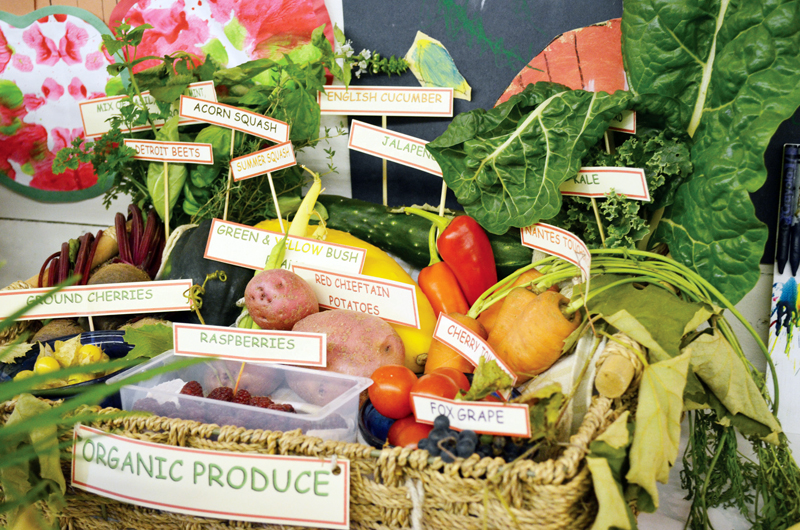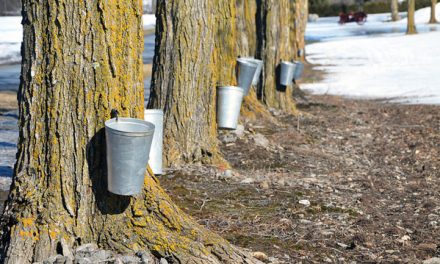More than a label
The Organic Products Act, 2018 was re-introduced at Queen’s Park on April 23. The bill, if passed would require strict regulations on the labelling of organic products at farmers markets and within Ontario. Vetter file photo
TORONTO – Peter Tabuns, MPP for Toronto-Danforth (NDP), and Sylvia Jones, MPP for Dufferin-Caledon (PC), re-introduced a co-sponsored private members’ bill on April 23 that would initiate an organic products regulation in Ontario.
The bill, originally introduced in September 2017, must be introduced again due to the prorogation of legislature in March, which caused all of the bills on the table at that time to die on the order paper.
The re-introduction of the bill follows a statement of clear support made by all parties two weeks ago at the Organic Council of Ontario (OCO)’s AGM & Policy Forum, where Liberal MPP Ted McMeekin, MPP Jones, and Green Party of Ontario leader Mike Schreiner spoke in a panel on the issue. Mr. McMeekin was clear in his support of the bill, stating clearly, “I would co-sponsor this bill.” In the past other Liberal MPPs have voiced support for the bill as well, but government has yet to fully support the legislation.
In November, OMAFRA held a series of listening sessions with the organic sector. Members in attendance clearly communicated the need for regulation.
Even though there is a federal regulation for organic products labelling, within Ontario the Canada Organic Regime is only enforced for products that carry the Canada Organic Logo. This means that products labelled simply as “organic” and sold within the province face little to no legal repercussion if these claims are inaccurate or even wholly false.
Five other provinces have already adopted regulations to address the need for better oversight of organic claims and ensure consumers and organic farmers are protected.
The bill was developed in partnership with OCO, the association for organic food producers and businesses in Ontario. According to OCO President Rob Wallbridge, the bill does more than just address labelling concerns. “Ontario’s $1.4-billion organic market is Canada’s largest, yet when it comes to organic production, we lag behind other provinces,” says Wallbridge. “A provincial regulation will give Ontario businesses the confidence to invest in the organic sector, laying the foundation for increased supply to meet the huge demand for local and organic products.”
If passed, the legislation will set in place a legal framework to close the regulation gap in Ontario. OCO sees this bill as the beginning of a process that will allow all farmers and members of the organic value chain to contribute to the contents of the final regulation.
“OCO has been consulting with farmers of all sizes throughout the organic sector to make sure this regulation would work for all,” says Organic Council executive director, Carolyn Young. “We know that some businesses struggle with organic certification, and that’s why regulation is only part of our strategy. We know that supports for organic farmers and those wishing to transition are needed, and we have a plan to make that happen. The intent is for the introduction of the regulation to begin a deeper conversation about how we can best support local organic production in this province so that Ontario doesn’t fall behind.”
Possible supports include tailored certification programs for small-scale farmers making organic claims, and financial aid to help them certify.
“This bill is designed to open doors.” says MPP Tabuns, who has been working with the Organic Council of Ontario to develop the bill based on Manitoba’s Organic Agricultural Products Act. “We want consumers to know they are actually getting what they pay for when they buy organic. But we also want to make sure that farmers and processors who invest in building an organic business are getting the most out of their investment.”
“This bill will provide further transparency and help ensure that the growing organic industry continues to enjoy consumer confidence,” says MPP Jones. “I am looking forward to this bill starting a dialogue with farmers and other stakeholders about how Ontario can align itself with the regulations adopted in five other provinces and at the federal level.”
The federal organic regulation, created in 2009, provides a legal definition for “organic,” and a certification system for organic products that cross provincial and national borders, but does not cover claims within provinces. Although organic claims enforcement is within the official purview of the Canadian Food Inspection Agency (CFIA), complaints regarding fraudulent or misleading use of the word, “organic,” are not likely to be enforced unless the products in question carry the Canada Organic Logo or are traded across provincial borders.













